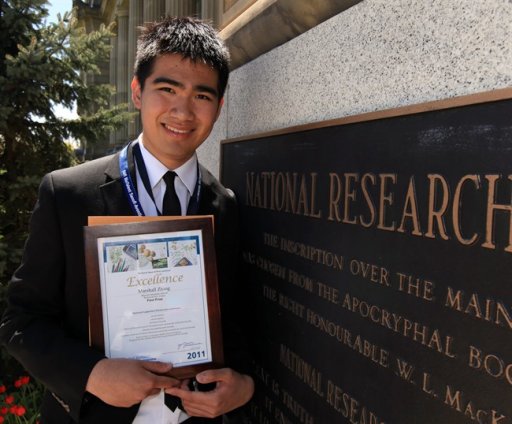That's the question that
Ann Kirschner poses in her article in The Chronicle of Higher Education.
The gist of the question is whether reading is important, the story or the ideas, or the format in which those stories or ideas come. Ten years ago this question would have been patently ridiculous, but today it is entirely pertinent.
It struck Kirschner, when she reached up for her old Penguin paperback copy of Little Dorrit by Charles Dickens, that there were other ways she could experience the story. Were those ways better, or worse? That, she didn't know, so in the true spirit of scientific inquiry, she decided to try an experiment.
As Kirschner states, she "
decided to read Little Dorrit four ways: paperback, audiobook, Kindle, and iPhone."
With the paperback version, Kirschner felt that flood of returning memories, a la Ratatouille, when something tangible comes into contact with the senses and sparks a cascade of old memories, locked away for so long. It brought her back to her graduate days, where she first fell in love with, as she says, "
the Victorian novel."
To each their own, I guess.But something she hints at, but doesn't directly state, is that the nostalgia fueled state actually distracts from the story itself. Those memories, those tactile reminders make reading in that manner as much about the reader as the story.
So it was on to the audiobook. I felt much the same way as she, though one particular insight struck me -
Audiobooks also impose a certain discipline. I think of this as real-time reading: The author and narrator control your pace, and it is impractical to skim ahead or thumb back to another section. For Dickens, so naturally cinematic and plot-driven, that can have a breathtaking effect.
By golly, what she is describing is the experience of the story as human beings had known it from the dawn of time. Sure we mostly read now, but I bet you that somewhere deep inside ourselves, programmed into our DNA over countless millenia, is a predisposition for engaging stories in this manner.
Kirschner loved the audiobook format so much that it was all she could to do force herself to the last half of the experiment. And this is where it really gets interesting.
I abandoned the Kindle edition of Little Dorrit almost as soon as I read one chapter on my iPhone. Kindle, shmindle. It does almost nothing that an iPhone can't do better — and most important, the iPhone is always with me. Woody Allen had it right: Seventy percent of success in life is showing up. Yes, the Kindle's reasonable imitation of a book is an advantage, but not enough to outweigh the necessity to carry an extra object and its power plugs
The only time I relied on my Kindle was on vacation last year. All the grown-ups on beach chairs seemed to have one, as if we all had obeyed some secret command to buy Kindles and wear sunscreen. In fact, readers 50 or older are the largest group of Kindle buyers. Therein lies the clue to Kindle's short life. Middle-aged readers think that the dimension of the screen is critical. It's not: The members of the generation that grew up playing Game Boys and telling time on their cellphones will have absolutely no problem reading from a small screen.
In the end, Kirschner's key observation was that while she loved books, she loves reading even more. As she says, it is "the sustained and individual encounter with ideas and stories that is so bewitching. If new formats allow us to have more of those, let us welcome and learn from them."
I couldn't agree more.
You know, while I am an unabashed technophile, I am also a cash strapped technophile. I love the idea of the Kindle, but have no experience with one myself, especially since they don't sell them in this part of the world. I'd love to try reading on an iPhone, but they do cost a pretty penny, and I am afraid to buy one if only because I have a tendency to regularly and forcefully drop my phones on hard surfaces. So I've forgone the pleasure and status bump that owning an iPhone brings, (but I did the second best thing and get an iPod Touch.)
Lack of cool gadgets aside, there are still ways to try out Kirschner's experiment. My own version included the normal book, the audiobook, the e-book in the form of a laser printed sheaf of paper, and the e-book on the computer screen.
Overall, when executed right, I love the audiobook format more than anything. But more often than not the execution is not right, the reading voice or cadence is off, and it is simply impossible to get through a longish short story, let alone a full on novel.
The book itself is still great. Hardcover, paperback, or trade paper back, all have their advantages and disadvantages. When you read massive books like I do, the hardcovers can be hard to read in bed, and hard to carry around. The trade paperbacks don't fit in a pocket easily, and are quite conspicuous when read in public. The paperbacks are my preferred option, but again, when reading those massive epics I face problems. Instead of heft, I have to deal with print size, tilting the book to catch the light since the pages flow into a dark canyon in the center of the book, and doing anything about that only ends up snapping the spine or creating myriad creases that scream "abuse!" This makes the paperback version ultimately disposable, since there is little point in keeping a broken and damaged book laying around for everyone to look at.
Then there is the laser printed sheaf of papers. I got to buying e-books from Baen, or downloading them from Gutenberg.org, and not wanting to lug around my laptop, stuck to a power outlet since the battery only lasts two hours, I would print them out. At first I printed them out one-sided, but quickly found that to be a waste of paper. Even double sided wasn't much better. But when I got to printing them two to a side of paper, I had hit the sweet spot. The text was the same size as that in a paperback novel, but there was more page area, and no dark crevasse in the center. Best of all, a 600 page novel ended up as a 150 page stack of paper, which cost, after ink and paper are added together, only a few bucks, really. Far less than the average $12 to $15 plus tax I was used to spending years ago. And, best of all, you can recycle the paper, which you cannot do for paperbacks.
But that's not all. I found that, when reading a sheaf of papers in public, it looks more like I'm reading a lawyerly brief than a work of fiction. Even at work, I can seem to be "working" when actually I am just kicking back and enjoying myself. To all and sundry it seems like I am reading for work and not for fun, which is an important distinction.
Though I know many avid readers where I work, they all forgo the pleasure of reading as to the many avid non-readers there, opening up a novel smacks of goofing off, and being seen to do so, on the job, can lead to expressions of concern from management. So the avid readers keep their books at home, and spend their time looking busy, and reading, where else, on the computer.
Of the colleagues I have spoken with, I am about the only one who actually does read novels and short stories on the computer. Of course I have a daily diet of gads of web pages, as the constant stream from news sites and blogs lands in my Google Reader account every moment of the day. Due to this, most of the reading I do on the computer is of short, to medium length articles, with a few magazine pieces, though I tend to print out the magazine pieces at home, later, if they go beyond 15 or so pages. There is something about staring, in a concentrated manner, into a constant light source that unnerves me. And while I have read many, many novels on this beat up old Dell, I've never felt physically good afterward. I've always felt a little queasy, with a bit of a headache on the side. Reading a novel is not like reading a blog post. With fiction, if you fall into a state of deep reading, your eyes are basically fixed on the screen for up to hours at a time. It's the visual equivalent cranking the cranking the volume on your iPod every time you wear it. Slowly, but surely, it causes irreparable damage.
So reading novels on the computer really is not something I prefer. Hardcovers are far to expensive and wasteful, since I don;t like rereading books, and I long ago lost my compulsion to display chunks of dead tree to guests who are not in the least interested. Trade paperbacks are the best from a tactile standpoint, but too conspicuous, and paperbacks, long the main for of book I bought, are wasteful. They are eminently disposable, and the only way I have to alleviate the waste that attends after I finish a paperback is to donate the book to my school library. Considering how much less it costs just to print the book off at home, it's like writing a big fat cheque to the library, and my bank account does not currently condone this practice.
So what's the best method I've found to enjoy e-books?
A stack of papers it is. Held together by a butterfly clip, with pages quietly placed disappearing as the story progresses. Until, with a page left, and one page in the hand, it is as if the story itself, now played out, has faded away into the mists.
Or... reading off my new iPod Touch, which is turning out to be a sublime experience in itself.




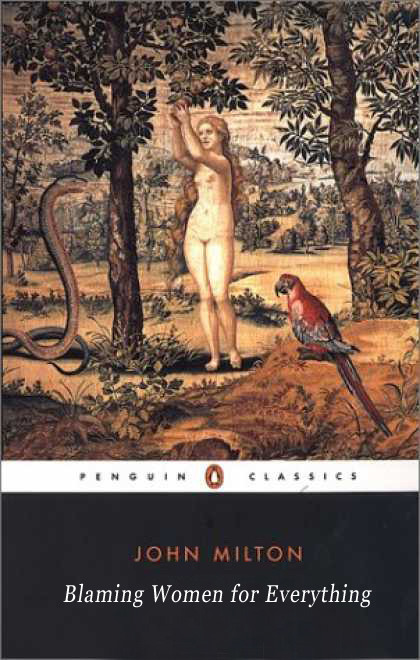
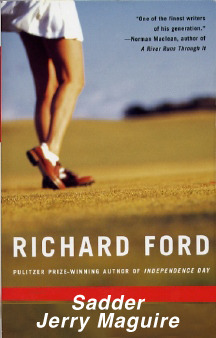
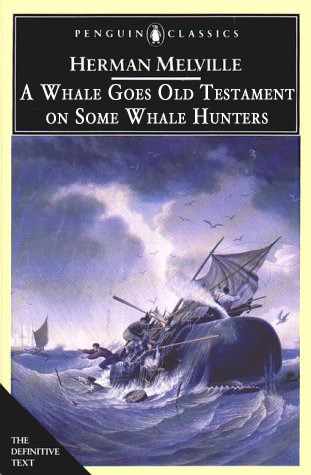

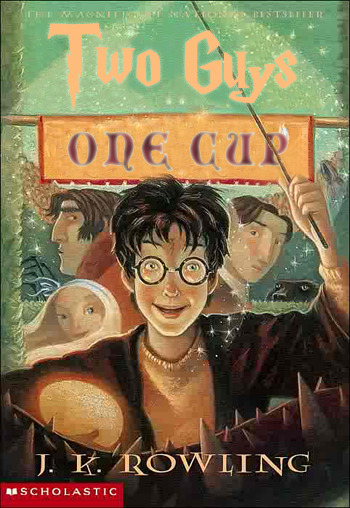

 ). This poem is based on the print version.
). This poem is based on the print version.